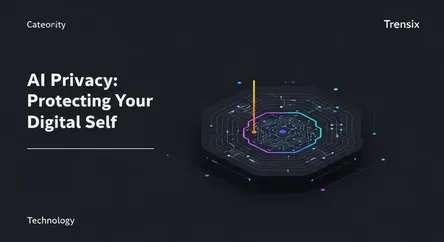Technology
AI Privacy: Protecting Your Digital Self

Discover what AI privacy is, why it's a critical concern, and how the growth of artificial intelligence impacts your personal data security.
What is it?
AI Privacy refers to the protection of personal and sensitive data used by artificial intelligence systems. It involves the principles and techniques used to ensure that individuals' information is not collected, used, or shared without their consent or in a way that could cause harm. This includes ensuring fairness, transparency, and accountability in how AI models are trained and deployed, preventing them from making biased or discriminatory decisions based on private data.
Why is it trending?
AI is now integrated into countless services, from personalized advertising to healthcare diagnostics. This proliferation means vast amounts of personal data are being processed, raising significant concerns. High-profile data breaches, controversies over facial recognition technology, and the rise of deepfakes have heightened public awareness. Furthermore, global regulations like GDPR and the California Privacy Rights Act (CPRA) are forcing companies to address the privacy implications of their AI systems, making it a major topic in tech and policy circles.
How does it affect people?
AI privacy directly impacts an individual's right to be left alone and control their digital footprint. A lack of strong privacy measures can lead to surveillance, manipulation, and unfair outcomes in critical areas like employment or loan applications. For example, a biased AI could discriminate against certain groups. Properly implemented AI privacy empowers users, builds trust in technology, and ensures that the benefits of AI are realized ethically and responsibly, without sacrificing fundamental human rights and personal autonomy in an increasingly digital world.